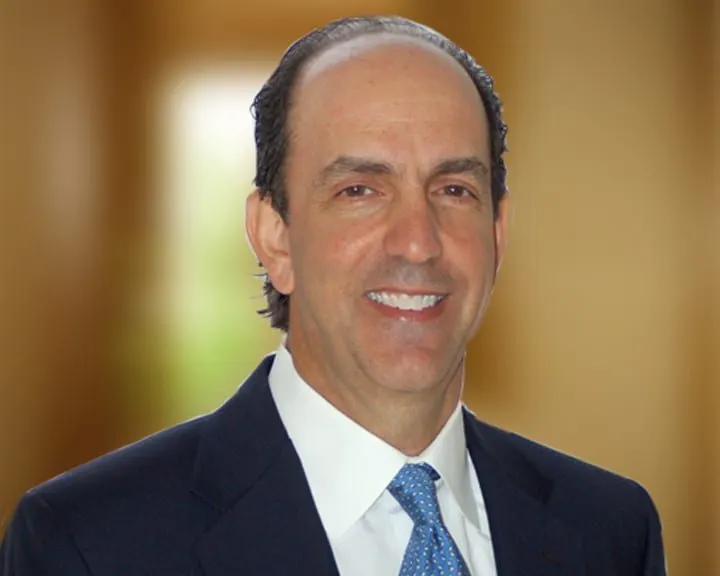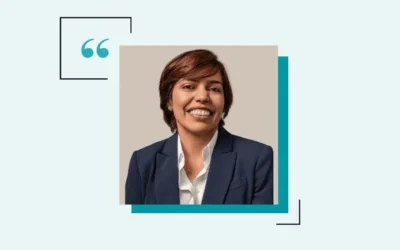Trintech CFO Omar Choucair has spent his career navigating the full spectrum of CFO challenges. Areas like public markets, private equity, M&A, ERP overhauls and everything in between have made up the bulk of his career in corporate finance. Now, he brings a perspective rooted in collaboration, clear communication and a long-standing commitment to staying active as a CPA.
In a recent interview, Choucair discusses the biggest lessons learned in his career, what makes ERP transitions succeed or fail, how to survive private equity oversight, why being frugal when hiring for the finance team may backfire, the declining number of CPAs among CFOs and more.
Omar Choucair

CFO, Trintech
First CFO Position: 1999
Notable previous employers:
- Multiview
- DG FastChannel
- Chancellor Media
- KPMG Audit
This interview took place at Gartner’s CFO and Finance Executive Conference in National Harbor, Maryland, on May 20. It has been edited for brevity and clarity.
ADAM ZAKI: You’re an active CPA and a tenured CFO, which is a bit of a unique combination. Why do you maintain your CPA, and what are your thoughts on the ongoing CPA licensure changes?
OMAR CHOUCAIR: I’ve kept it up for 30 years. One of the few CFOs who do. It’s really important to me personally.
The issue of young, smart people not getting into accounting isn’t going to be solved by changing to four years. It’s about the money. There has to be more money in public accounting. I firmly believe my success is tied to my 10 years at KPMG. The experience, deadlines, challenges, communication skills, stress — you can’t get that anywhere else. That’s the best starting ground for a CFO.
I have two daughters. They did 150 hours and got their CPAs. Early on, their friends were making 30, 40, 50% more than they were. That’s a downer. And millennials, the kids today, want to get paid for what they’ve done.
“The answer, or at least a big part of it, is that young people have to get paid more money in public accounting.”

Omar Choucair
CFO, Trintech
The Big Four have increased salaries somewhat, maybe 20–30% in the last two years, so maybe there will be some alleviation there in the future. But from an education perspective, I got my CPA after 120 hours and turned out fine. I don’t think that’s the answer. The answer, or at least a big part of it, is that young people have to get paid more money in public accounting.
Did you find that earlier in your career, other CFOs were more often CPAs?
Yes, absolutely. Now it’s changed. A lot of people come through finance or operations. But for me, I’d rather have the base of how things work in a company and then get the operational experience. I love operations, but I think it’s very hard to come from ops and then understand how the program works.
What was the biggest external factor that impacted your role as a CFO so far in your career?
COVID changed it for me because when it happened, people were really distraught. And the only thing they knew to do was go, “Hey, we need to go check with the CFO,” because there were capital issues, there were debt issues, you had employee issues, culture issues, IT issues — every issue could come up. That March [2020], people were doing hundreds of different types of forecasts. I think that was like the watershed.
What was your biggest lesson from that?
Communication across the C-level. I think many companies worked in silos. Even though they didn’t want to, I think many organizations did, just because that’s the way the CEO set it up. But once COVID hit, everything had to be on the table, and the CFO was the go-to person in many companies.
Everybody had to talk to each other. There had to be somebody taking notes, setting up execution items — who was going to do what by tomorrow? Who was going to do what by next week? And in many cases, it just fell on the CFO. So I’m just saying, to me, that’s it — everything accelerated because the world got more complicated. It taught me the value of streamlined communication and cross-collaboration.
You’ve spent time working as a CFO in public companies and ones owned by private equity. What advice would you give to a CFO stepping into their first PE role?
I spent a little over 15 years in public companies and then did my first period with private equity for five years. You have to be incredibly organized around both organization and communication. Those are the two keys.
“As a public company CFO, you can’t miss more than two metrics. If you miss revenue growth, EPS or another metric, your stock’s gonna collapse 20-30%.”

Omar Choucair
CFO, Trintech
You have to be able to see around corners. And the only way to see around corners is to make sure you’re organized and can communicate. And that’s what I would tell people trying to take their first step. As long as you’re aligned with the CEO and you’re aligned with the private equity team, even if there’s misalignment between CEO and PE, the train will go off the rails if the CFO communication isn’t there with both parties.
Compared to your public company days, is the PE model a bit less demanding?
It’s not less demanding, it’s different. This is what I tell everyone: As a public company CFO, you can’t miss more than two metrics. If you miss revenue growth, EPS or another metric, your stock’s gonna collapse 20-30%. In private equity, you have 20 metrics. And it’s OK if you miss a metric or two here and there, as long as you have a very well-filed, executed recovery plan for those metrics. It’s just so much different.
Have you made any succession plans?
This is another major difference between working for a public company and one owned by private equity. It’s hard in private equity. In public companies, it’s more important. When people leave private equity, you often promote internally or restructure. My view has always been: get the absolute best people — people smarter than me. And when that happens, there’s an opportunity. We just did that recently with a departure.
From what I’ve seen in private equity, formal documents that have outlined succession plans for executives don’t usually exist. The board may have an idea.
If something happened to me where I had to suddenly leave, I think my fellow executives and finance team could keep things going for six months to a year. And if someone internal can step up, great. If not, they’d go external.
When you implement a new ERP system, what’s the best way to prepare before the project even begins?
It’s a timely question, because we’re looking at that right now. Nothing can prepare a company or a CFO more than complete, massive documentation — flowcharts and documentation narratives. I spent 10 years in public accounting, and I learned quickly that finance needs a narrative that can take people across the organization through the accounts payable cycle. For companies to be successful, you need all those narratives and flowcharts completely cooked, baked and ready to go.
“I spent 10 years in public accounting, and I learned quickly that finance needs a narrative that can take people across the organization through the accounts payable cycle.”

Omar Choucair
CFO, Trintech
In the last 10 years, we’ve done order-to-cash implementations, ERP implementations, HR implementations — they’re all incredibly difficult. Make sure you have all your narratives and your flowcharts done, and you have to hire and onboard really good people before any implementations. Typically, you don’t have those people on staff, so you have to hire consultants. If you do this proactively, and you’re not cheap on hiring people, it will help make the process much smoother later on.
How do you avoid being oversold and make sure salespeople are making legitimate claims about their product’s capabilities?
I never blame salespeople. It’s procurement, it’s legal, it’s me. You can’t contract with an ERP company and then six months later say, “Well, that’s different than what they said.” It’s always going to be different. It’s up to the company. People who have been around discount a lot of what salespeople tell them. And that’s what we do — so you have to assume what people are telling you is not 100%.
As an organization, we automate front-end solutions and reconcile third-party data systems into ERPs, but we don’t replace the ERP. We make it stronger and more effective. So luckily, we can use our own tools. However, over the last four years, we’ve aggressively tried to upgrade every piece of the stack. That includes the FP&A tools, all the data tools and now our ERP.





